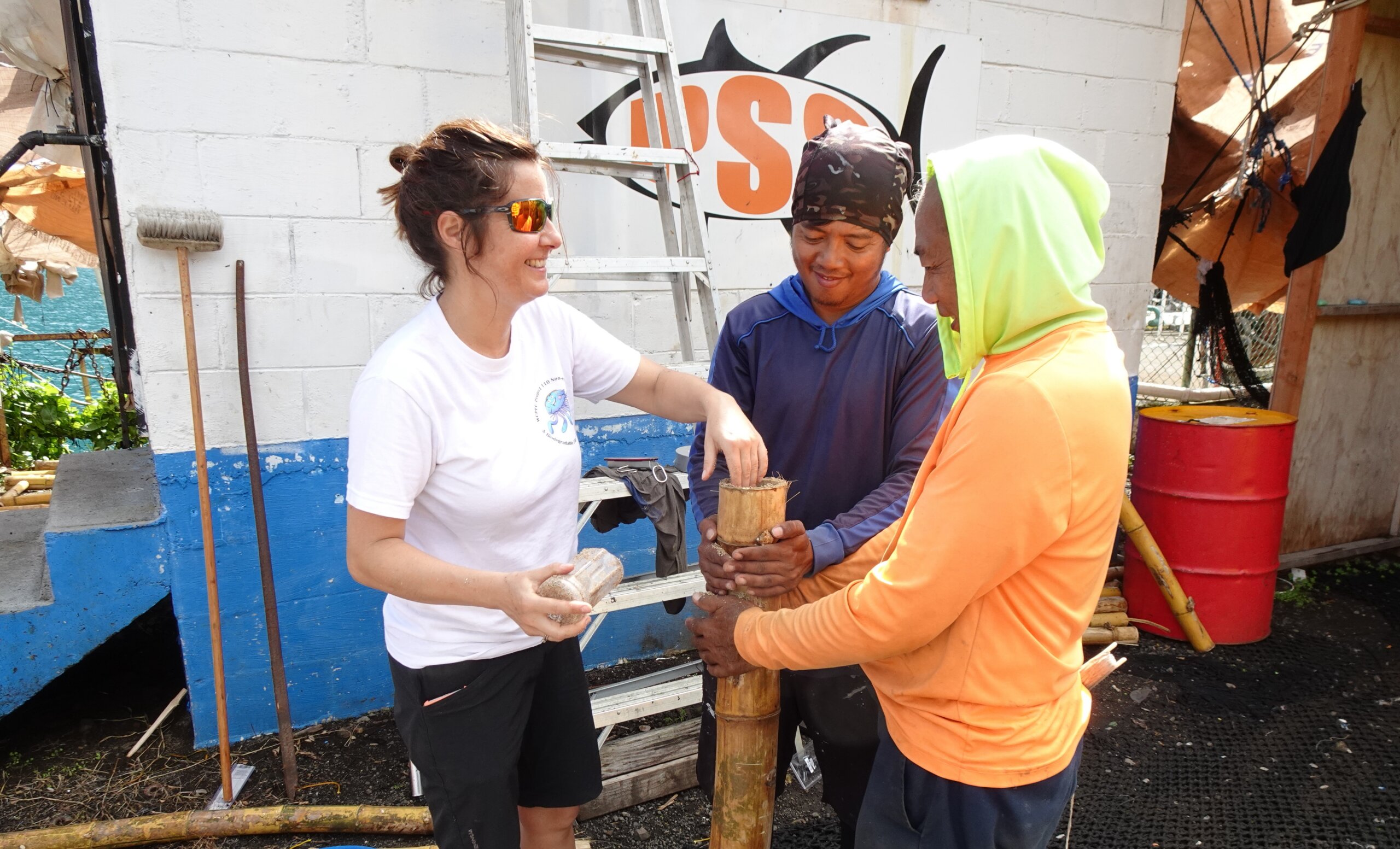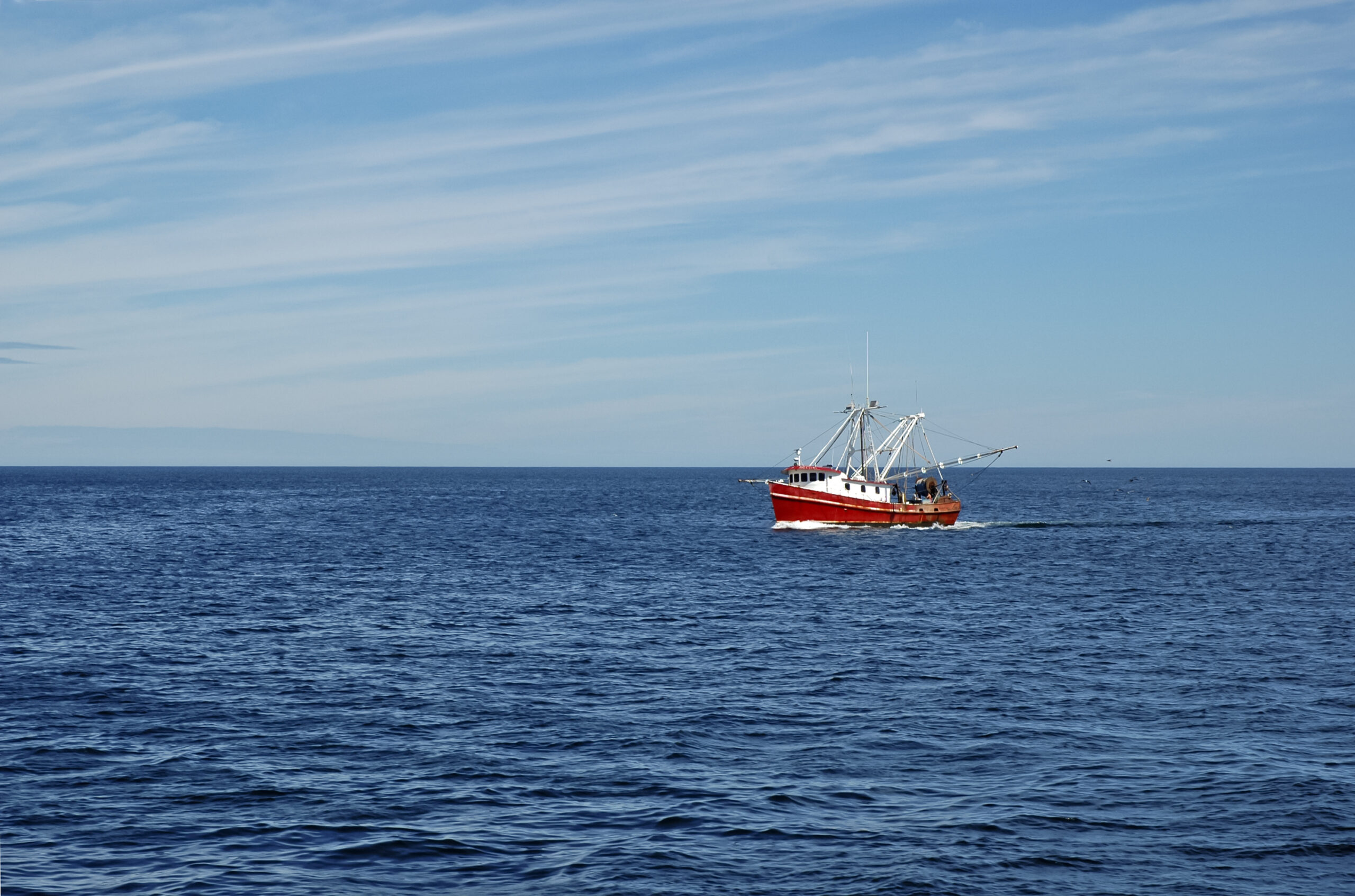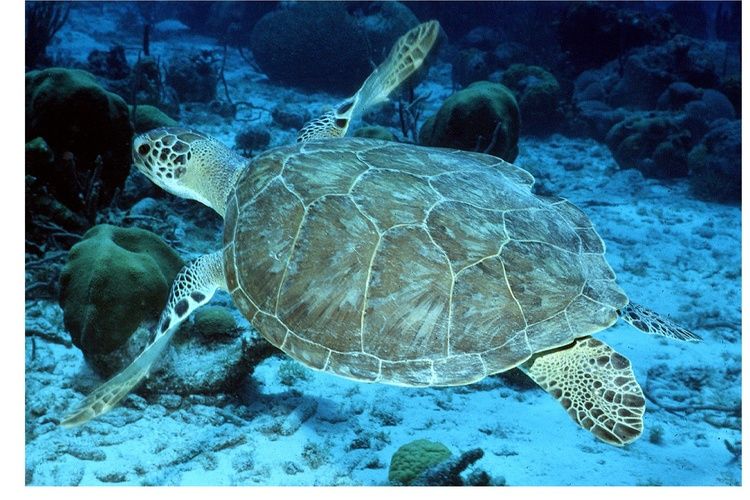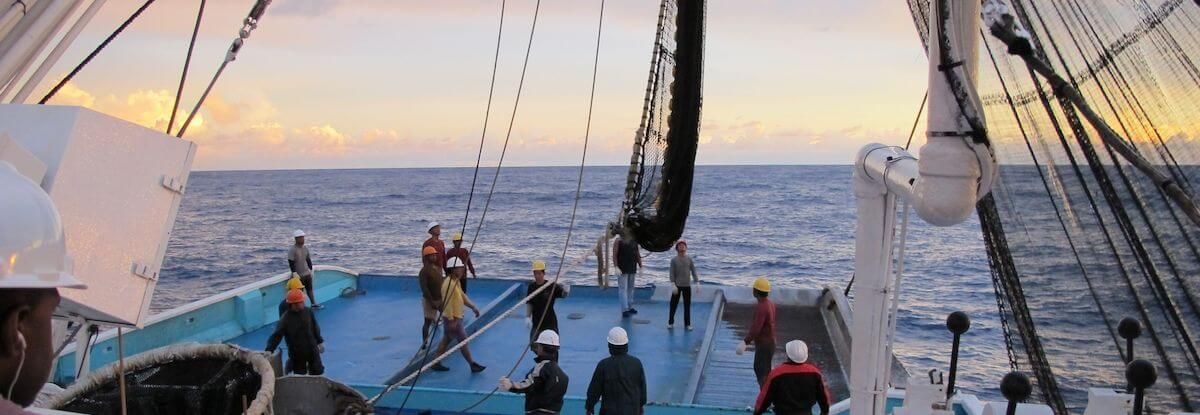
Skippers Resources & Certification
In addition to in-person Skippers Workshops, we offer other sustainable fishing resources for tuna fishers — including guidebooks, species identification guides, videos, infographics, and posters on bycatch mitigation.
Some of our materials were developed for both purse seine and longline fishers. Others were developed specifically for purse seine, longline, or pole-and-line tuna fishers.
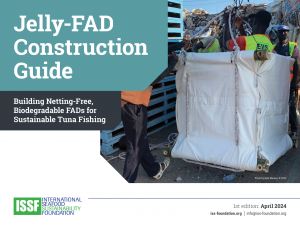
Resource for Tuna Fishers
We created an illustrated guide that gives tuna fishers step-by-step instructions for building jelly-FADs.
RESOURCES FOR PURSE SEINE, LONGLINE, & POLE-AND-LINE FISHERS
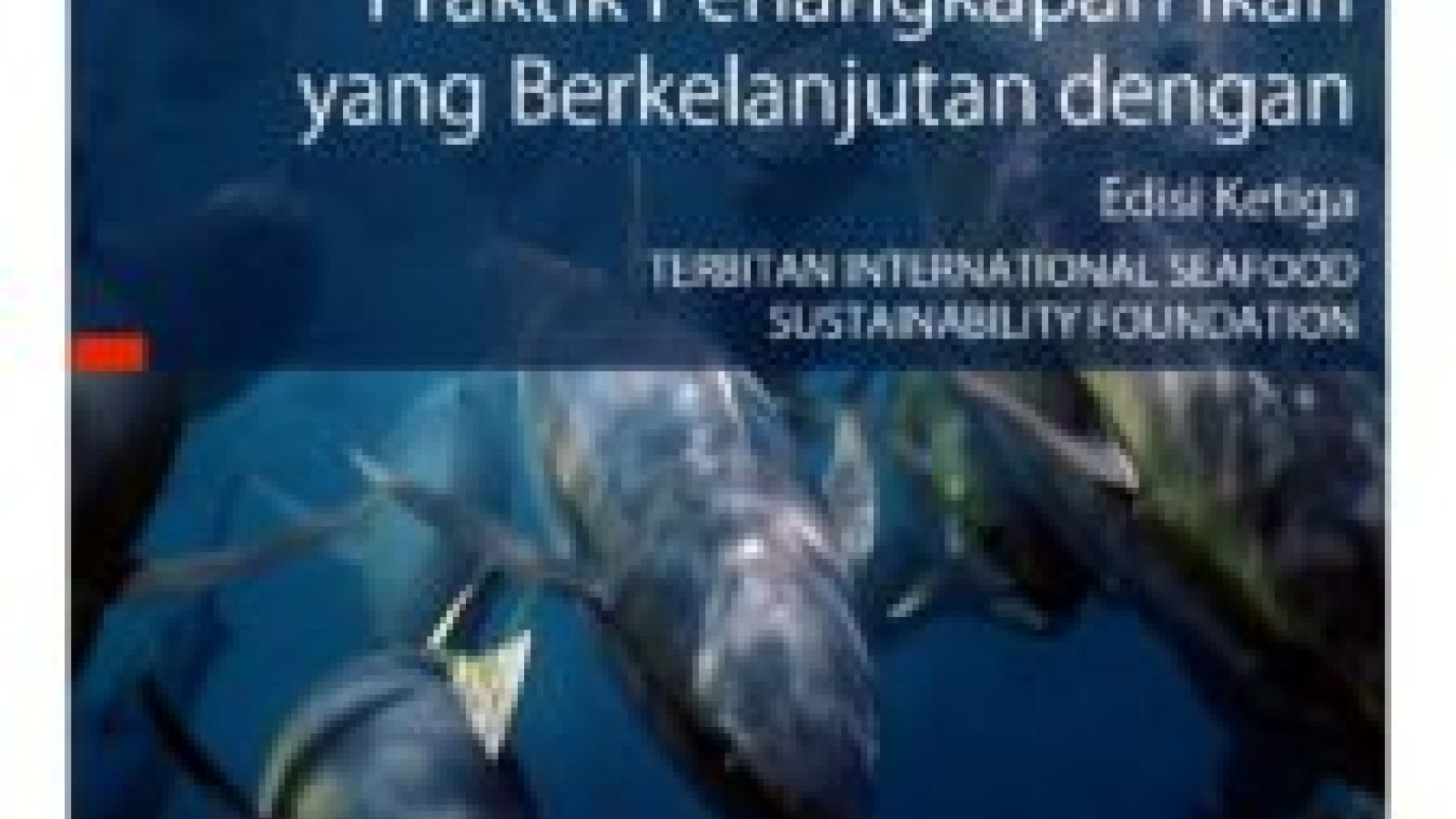
ISSF Skippers Guidebooks
Skippers Guidebooks, for purse seine and longline crews, are available at our Guidebooks site in Web page or downloadable PDF format. They include information on sustainability, bycatch, and fisheries management.
- The Web page versions of the longline and purse seine guidebooks are in English.
- PDF versions of our longline and purse seine guidebooks are available in Chinese Simplified, Chinese Traditional, English, French, Indonesian, Japanese, Korean, Spanish, Tagalog, and Vietnamese. We also offer some as ePubs.
We also have a pole-and-line skippers guidebook in English and PDF format. The guidebook is a joint publication of ISSF and the International Pole & Line Foundation (IPNLF).

Certification for Fishers Completing Guidebooks
At the end of each purse-seine and longline guidebook, there are links to “feedback forms” in the same languages as the guidebooks. Fishers should fill out the form after they have finished reading a guidebook. There is no feedback form or certification related to the ISSF/IPNLF pole-and-line guidebook.
Follow these steps to gain certification for completing a guidebook:
- Find the guidebook that applies to you, either purse seine or longline.
- Choose the format that’s convenient for you:
- Web page version of the guidebook OR
- PDF version of the guidebook
- Read the entire guidebook.
- At the end of the guidebook, look for the “feedback form” link.
- Click the link, fill in the form, and then submit the form.
RESOURCES FOR PURSE SEINE FISHERS ONLY
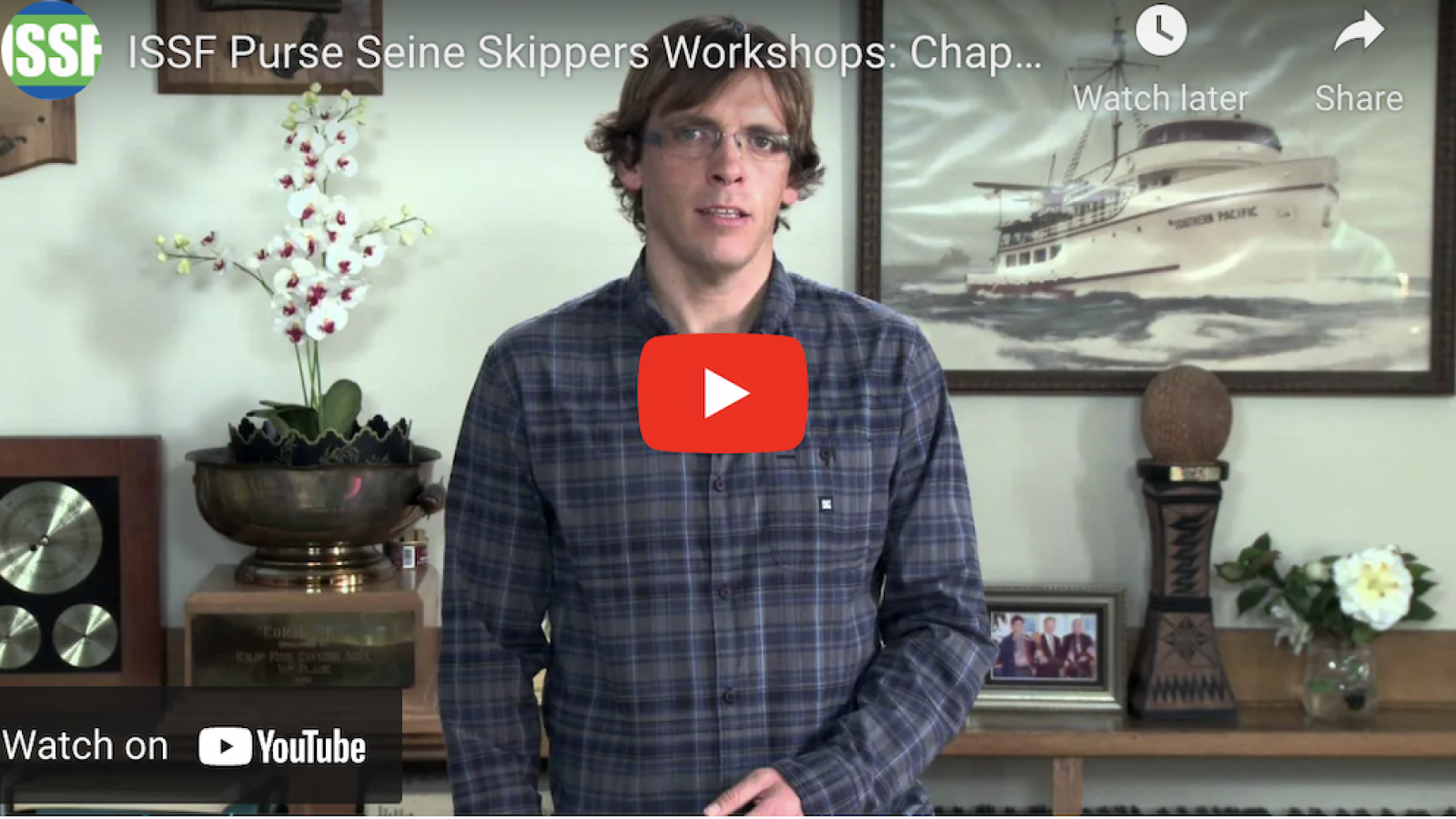
Skippers Workshop Videos
Skippers and others who cannot attend ISSF workshops in person can watch Skippers Workshop videos on the ISSF YouTube channel. The workshop videos are for purse-seine crew.
At the end of each video, there is a Web address for a “feedback form.” Go to that Web page to complete and submit the form to gain certification.
Workshop videos are in English, with Chinese subtitles, Korean subtitles, and Spanish subtitles available.
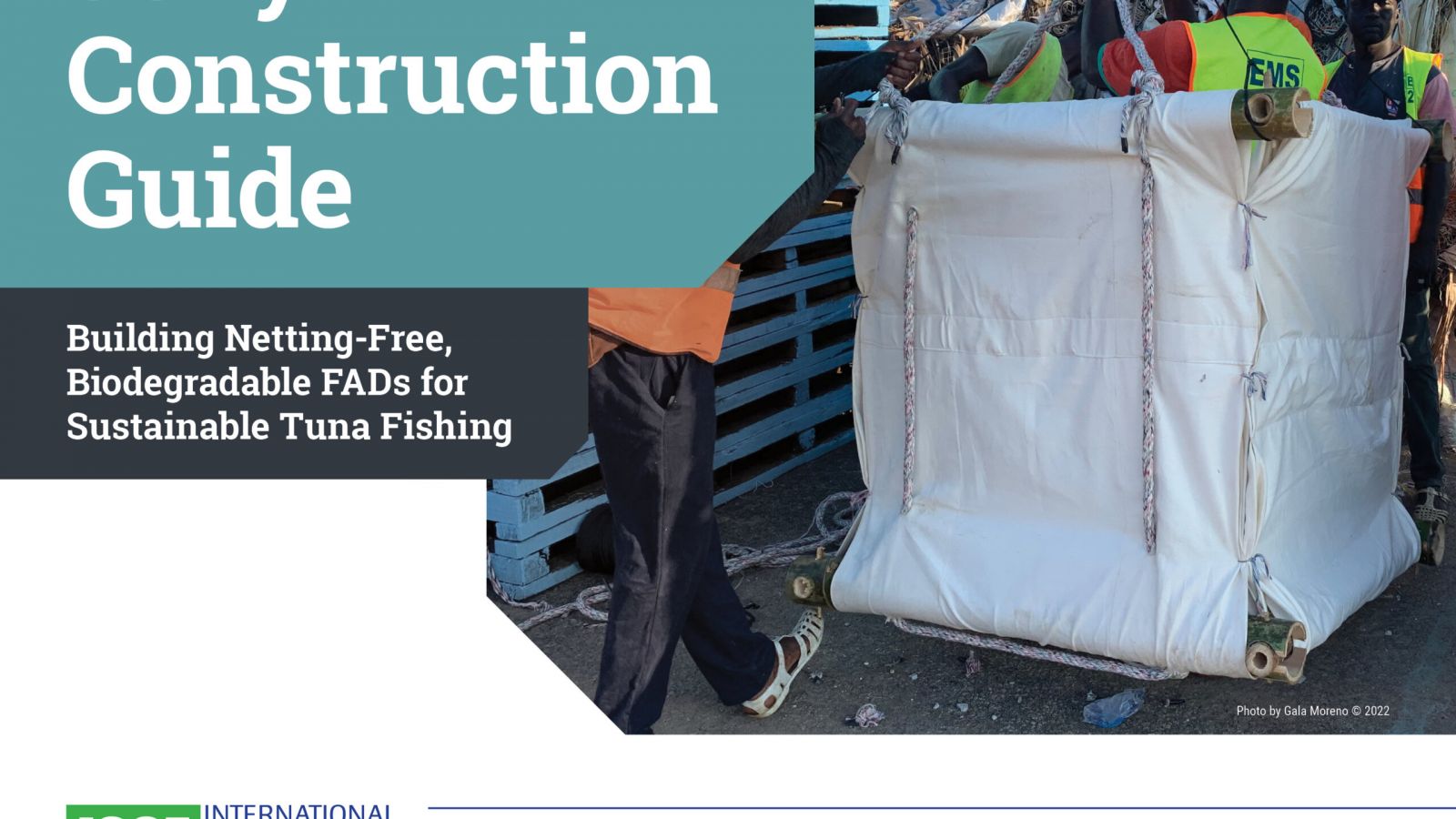
Jelly-FAD Guide
Our latest guide shows fishers step by step how to build what we believe is the most sustainable FAD type to date: the jelly-FAD.
To prevent marine pollution and the bycatch of sharks and other vulnerable marine species, jelly-FADs are made with biodegradable materials, and they do not have netting.
To make jelly-FADs, fishers do not need to have unusual materials, special equipment, or advanced carpentry skills.
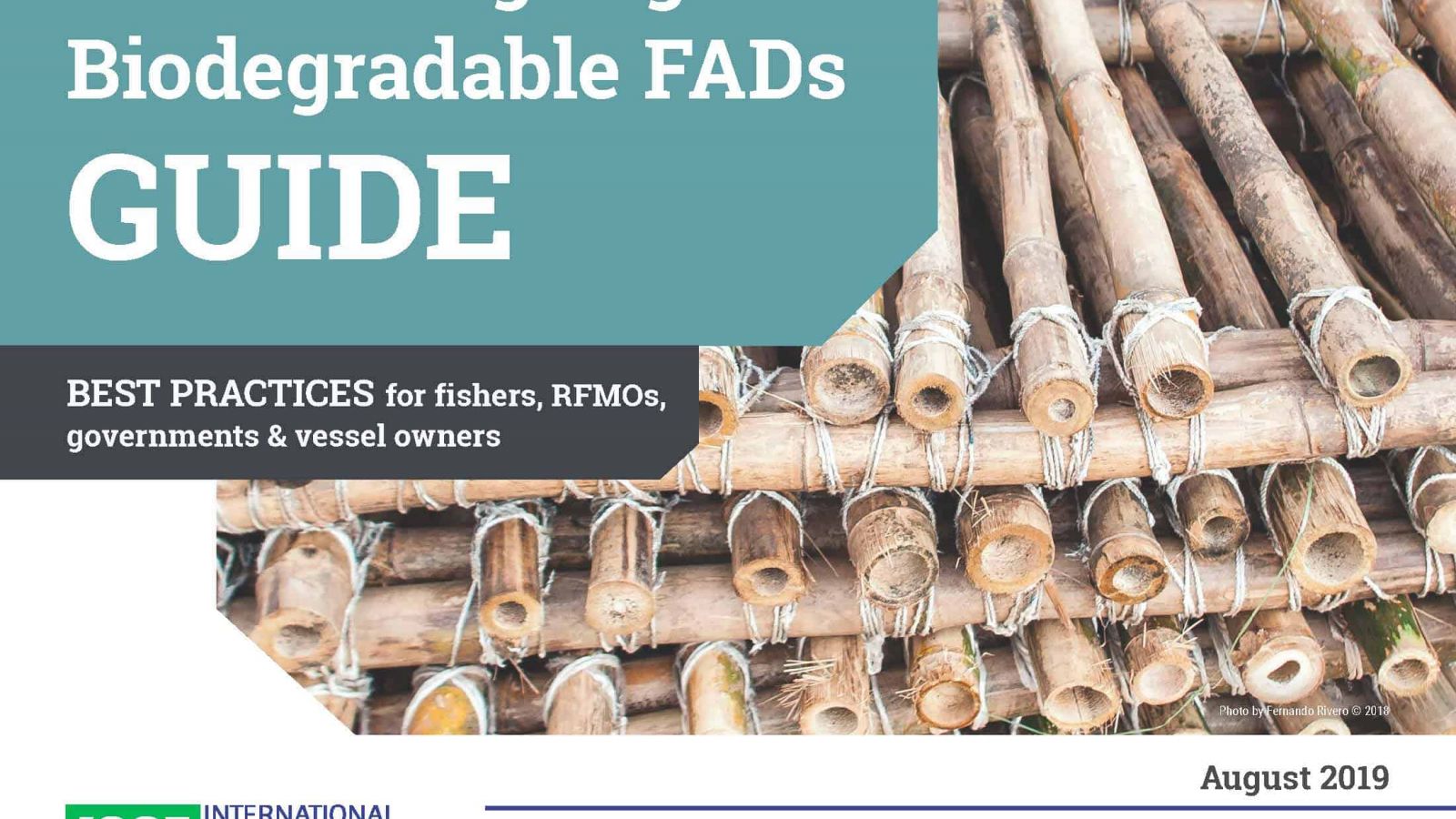
Non-Entangling & Biodegradable FADs Guide
Our 2019 edition of this guide for fishers and others included detailed guidance on constructing fish aggregating devices (FADs) that are biodegradable as well as non-entangling. The Non-Entangling and Biodegradable FADs Guide can be downloaded in several languages.
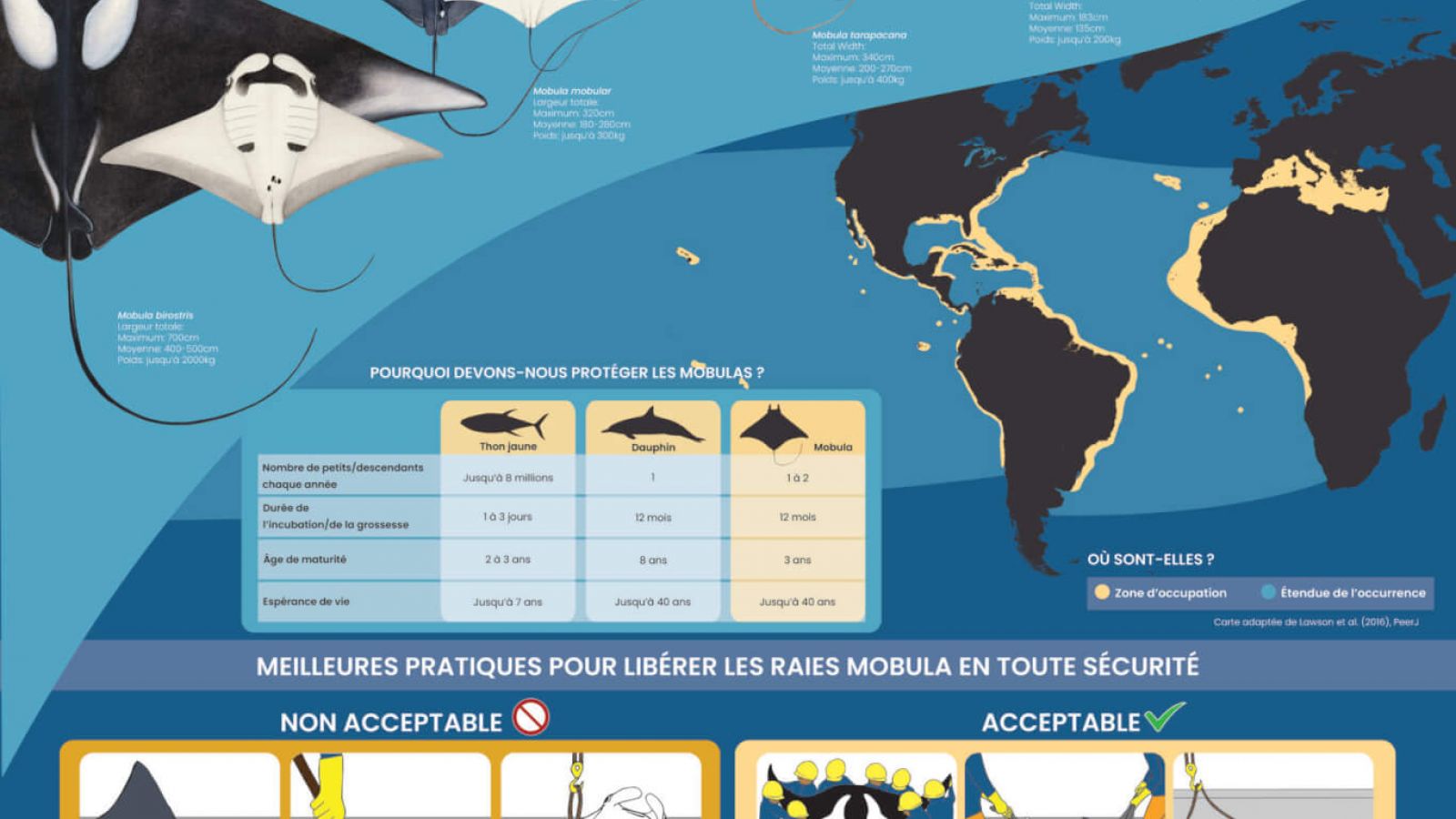
Mobula Ray Posters
These bycatch mitigation posters, courtesy of ISSF Seafood Sustainability Contest Grand Prize Winner Melissa Cronin, are designed to help fishers identify ray species and follow recommended handing techniques.
- Atlantic Ocean
- Eastern Pacific Ocean
- Western & Central Pacific Ocean and Indian Ocean
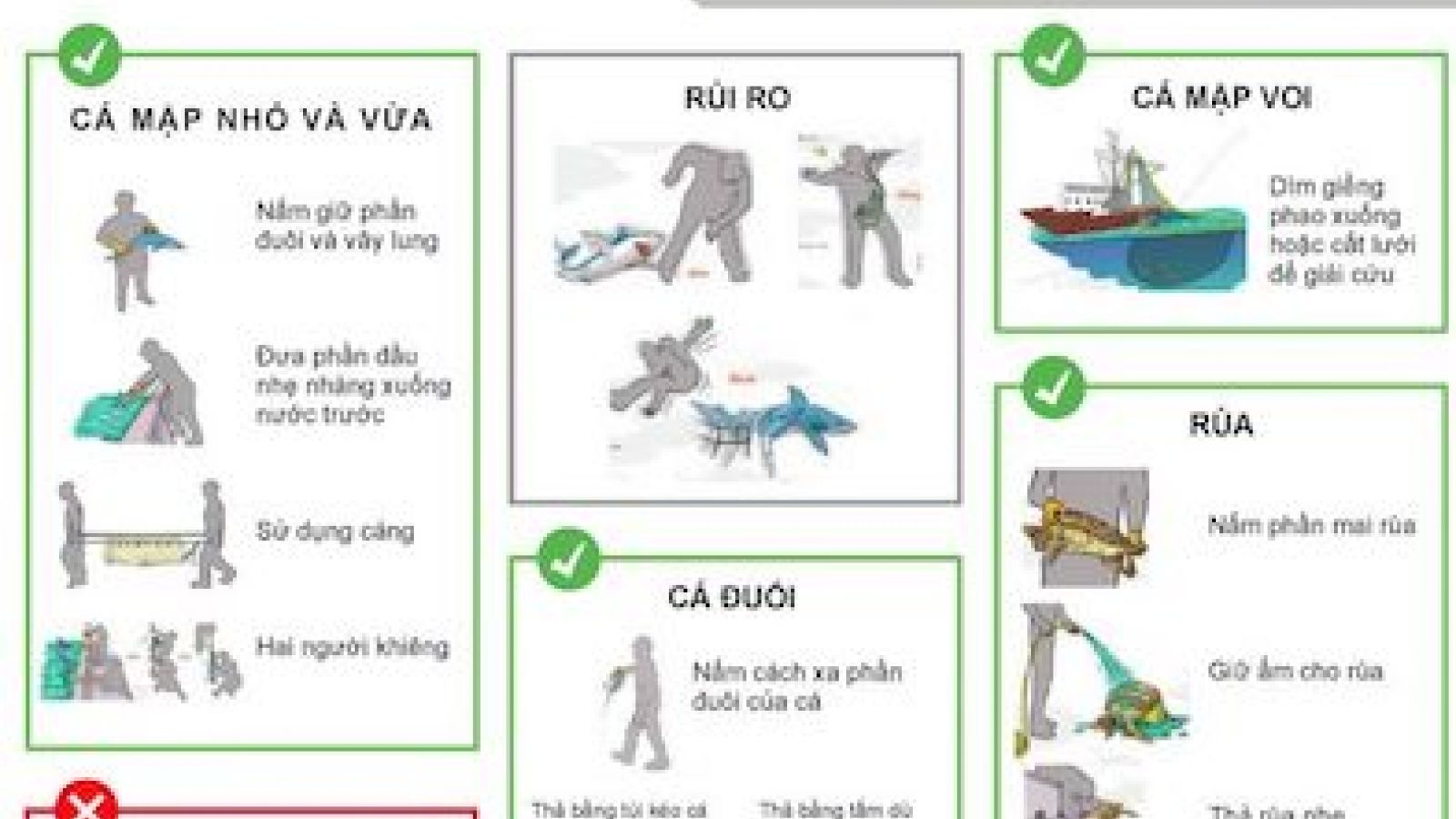
Posters on Bycatch Mitigation Best Practices
The Skippers Workshop team has developed posters for purse-seine fishers to illustrate “best practices” for handling and releasing sharks, manta rays, and sea turtles that are incidentally caught. The posters are based on the best practices for bycatch-handling guidebook produced by Poisson et al. 2012.
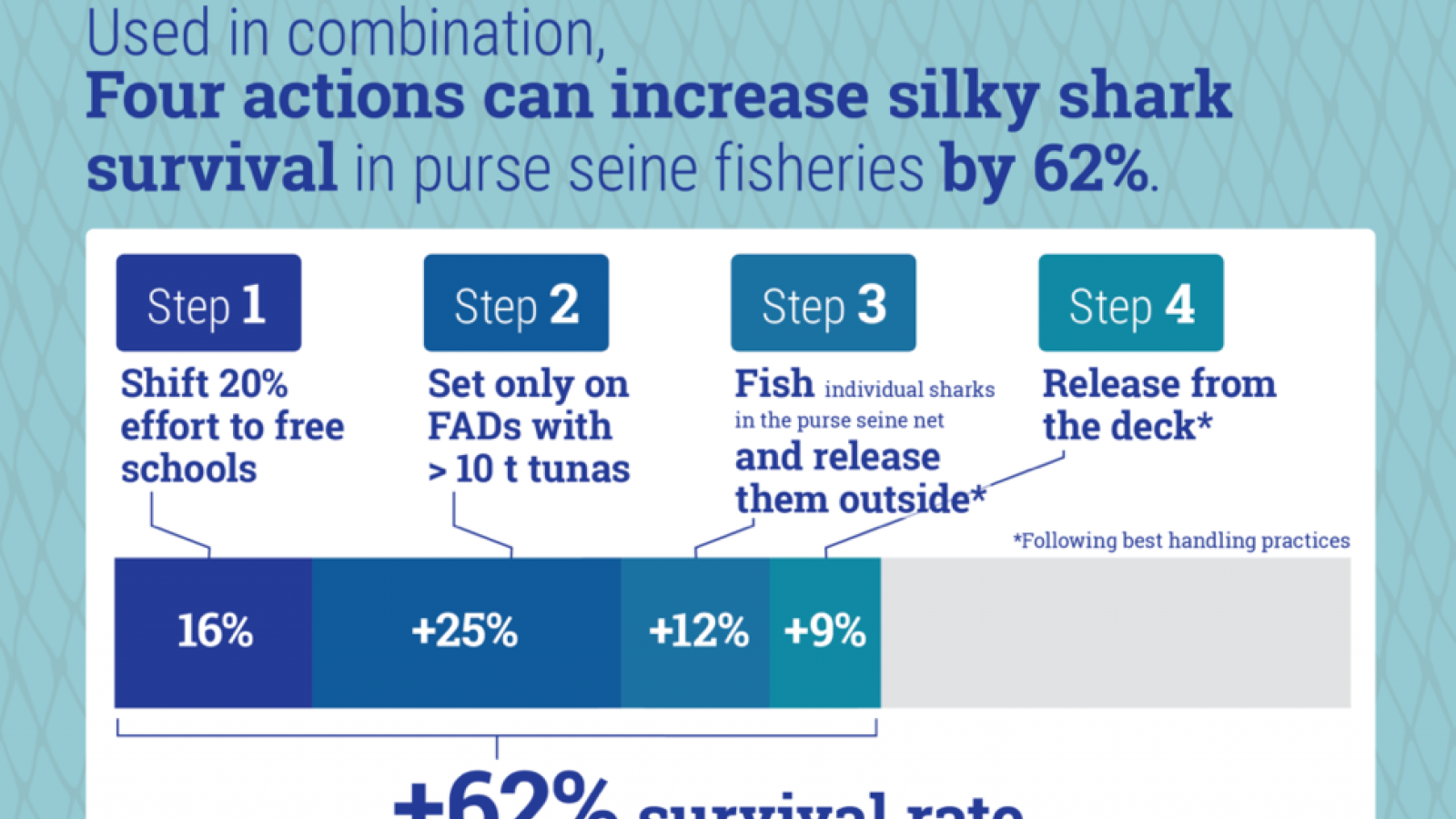
Infographics on Bycatch Mitigation Best Practices
ISSF has created infographics showing best-practice techniques for handling and releasing incidentally caught sharks in purse-seine fisheries.
RESOURCES FOR LONGLINE FISHERS ONLY

Infographics on Bycatch Mitigation Best Practices
ISSF has created infographics showing best-practice techniques for handling incidentally caught turtles in longline fisheries. Download the infographics as PDFs:

Videos on Bycatch Mitigation Best Practices
ISSF’s YouTube site has videos for longline fishers on the best handling practices and hook removal techniques for sea turtles and seabirds, which can be incidentally caught in their fisheries.
The video on sea turtle handling and hook removal is available in these languages:
- Chinese subtitles
- English
- Korean subtitles
- Indonesian narration and subtitles
- Indonesian subtitles
- Portuguese subtitles
- Spanish subtitles
For seabirds, we have a video in English on seabird bycatch. With BirdLife International, ISSF co-sponsored a video on seabird bycatch mitigation in longline fisheries, available in several languages.
Conservation Measure 3.4
Skippers workshop attendance, workshop video viewing, or guidebook completion fulfill the requirement for ISSF conservation measure 3.4.
Sign Up for E News
Stay up to date on ISSF’s activities and contributions in sustainable fishing by receiving our weekly e-newsletter.
ISSF’s E News highlights conservation measures and compliance results, new reports and infographics, helpful tools and resources, and media coverage about ISSF.
